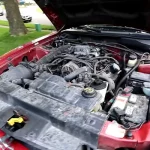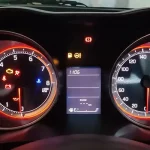Your car might jerk whenever you accelerate, indicating a larger issue. Your car will suffer less damage if you diagnose the problem as soon as possible, and you can lower the repair costs.
It means that your car is jerking about due to an engine misfire and causing the engine to stumble, making it appear as if it is moving. Ensure the harness is securely attached to the camshaft position sensor and free of any damage.
If there are any burn marks on the spark plugs and wires, replace them. In this case, the burn marks are caused by too much voltage applied to the spark plug or wire.
The mass air flow sensor (MAF) must be cleaned if the camshaft sensor and ignition wire sets are exemplary. In case of damage or burns, replace the part. Make sure a certified mechanic checks out your car before it worsens.
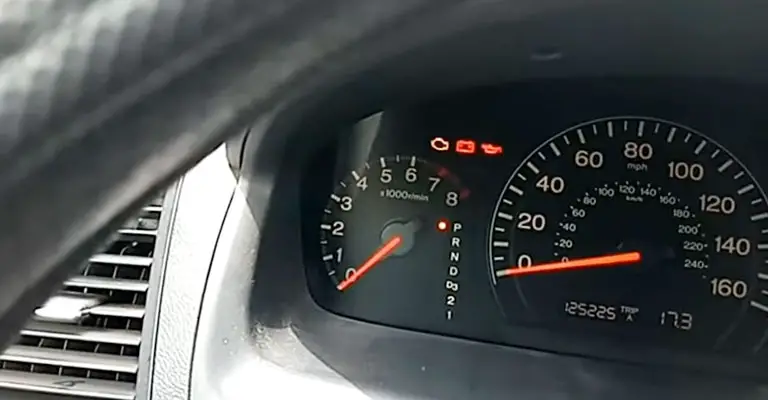
Reasons Why Car Jerks And Check Engine Light Comes On
There are several reasons why a car might jerk when accelerating. Let’s look at what’s causing these problems and how we can fix them.
1. Clogged Catalytic Converter
As your car’s exhaust emissions are regulated by its catalytic converter, the converter plays a crucial role.
For example, when you press the gas pedal, jerking or stuttering may result from the rich mixture of air and fuel flowing through your catalytic converter.
2. Bad Transmission Control Module
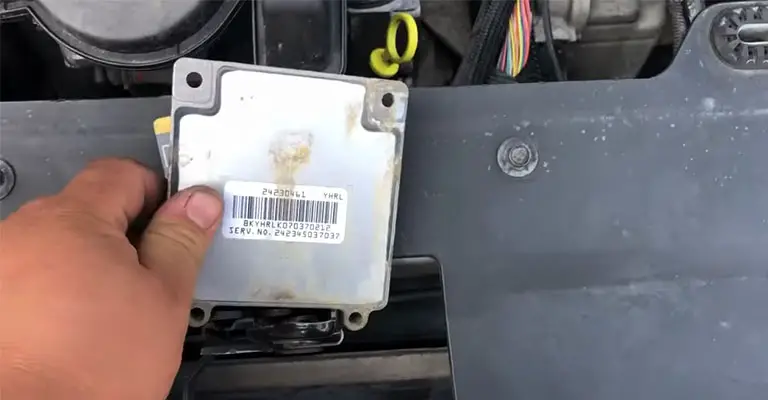
It is possible that a faulty transmission control module (or solenoid) is to blame if your automatic transmission jerks or bucks during gear changes.
When you accelerate, this part changes gears. As a result, there may be a delay in gear shifts or unpredictable shifts, which can feel harsh and make the car jerk while shifting.
In troubleshooting, it is worth considering, even though it is not a common failure point.
3. Defective Carburetors
Carburetors control how much air and fuel are mixed before they enter an engine. As a result, you will notice that your car will jerk when accelerating when the carburetor is damaged and perform poorly overall when the carburetor is damaged.
4. Accumulated Moisture
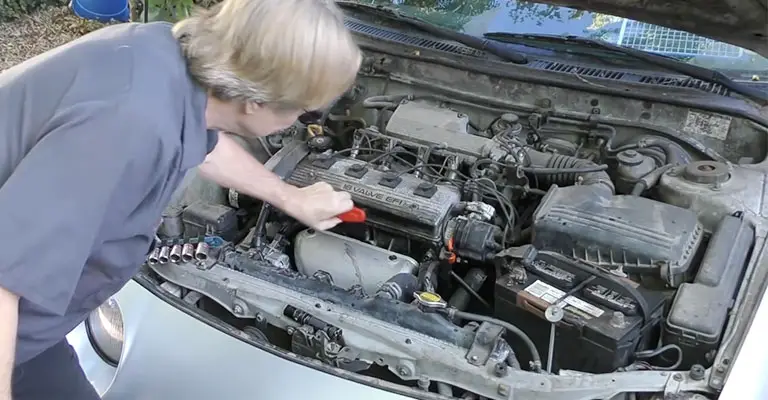
When moisture gathers in your car’s distributor cap, your engine will misfire, causing your car to jerk as you accelerate.
Parking outside in cold weather can cause this to happen quickly. Therefore, cold and wet weather days are best avoided by parking in a warm, dry area.
5. Worn Accelerator Cable
Many vehicles on the road use physical accelerator cables (or throttle cables), even though most cars use a drive-by-wire electronic throttle control. This link connects the throttle plate and gas pedal mechanically.
This accelerator cable can wear out over time. When you apply the gas, the car will lurch instead of accelerating smoothly because it will respond more slowly.
Examining the cable will usually reveal damage to the outer coating, so diagnosing the problem is straightforward.
It is imperative to repair a damaged cable as soon as possible since a broken cable will stop the car from working. To ensure the replacement is done correctly, take it to a reputable mechanic.
6. Damaged Cylinders
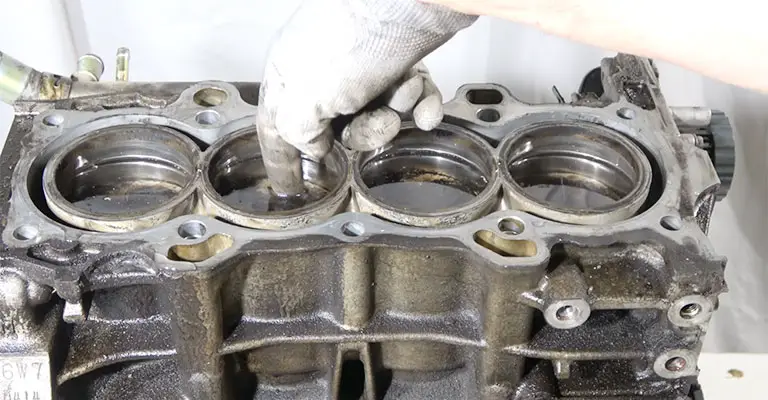
In the case of damaged engine cylinders, your engine will not be able to function properly and will misfire.
A mechanic will be able to repair or replace the cylinders if you notify him or her of this issue. However, engines can be quickly ruined if you don’t care for them.
7. Blocked Fuel or Air Intakes
Fuel and air are essential to the operation of a car engine. Lighting the spark plugs, air, and fuel mix inside your engine creates an explosion that drives the pistons. Your car moves as a result of this cycle.
However, during acceleration, your car may jerk if the lines allowing fuel and air to enter your engine are blocked.
In most cases, when one of these intakes is blocked, a check engine light will appear – never ignore a check engine light!
8. Dirty Air Filter
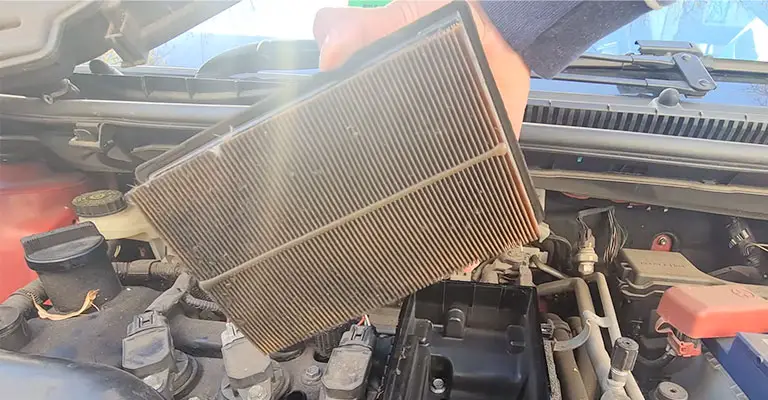
As you read this article, your car often sputters or jerks when you accelerate because of an improper air/fuel mixture. On the other side of the fuel equation is the proper air intake.
Often, you’ll experience the same problems when there is not enough air entering the combustion chamber.
Dirt and other foreign particles are the first lines of defense for your car’s air filter. Unfortunately, some particles can enter the engine through a dirty air filter, affecting the engine’s performance and causing it to jerk.
Air filters should be checked regularly. It should be replaced if it is dirty. In most cases, it only costs $10-20 and takes a few minutes to replace.
In addition, you can purchase reusable air filters such as a K&N, which can be cleaned in the future.
In addition to reducing or eliminating acceleration jerks, a clean filter will drastically extend your car’s engine’s life.
9. Bad Fuel Pump or Filter
A fuel supply issue often causes your car to jerk while accelerating. It is often best to start at the beginning when the engine is not receiving the correct amount of fuel.
The car’s fuel pump would be responsible in this case. You may notice your car jerking or accelerating forward if the fuel pump fails to meet fuel demands.
The fuel filter may also become clogged, which can restrict fuel flow and cause inconsistent fuel delivery. However, fuel filters can be easily replaced and do not cost much money.
10. Faulty Mass Airflow Sensor
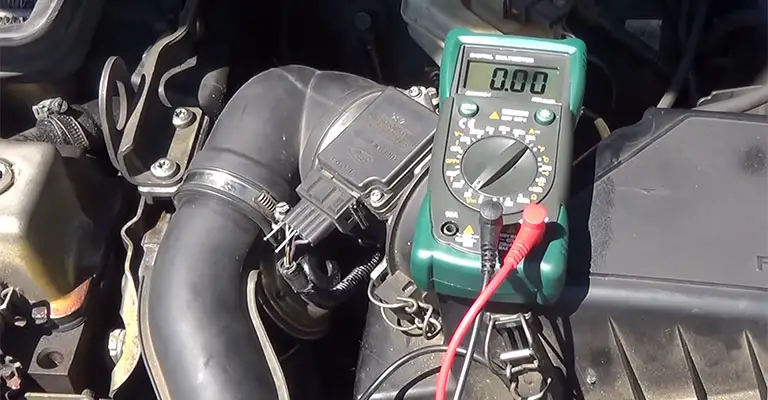
Mass airflow sensors (MAF) may fail if your car surges forward or jerks at high speeds. This sensor tells the car’s computer how much air enters the engine so it can adjust the engine accordingly.
To achieve a proper air/fuel mixture, the computer instructs the fuel injectors to deliver the right amount of fuel when needed.
During high-speed driving, you may experience your car suddenly jerking forward if the MAF sensor is faulty.
OBD2 scanners can easily confirm if a mass airflow sensor is terrible by turning on the check engine light.
11. Dirty Fuel Injectors
You can think of fuel injectors as the mechanism that allows the gas in your car to enter the engine. Fuel flow through your fuel injectors will not be continuous when they are dirty.
This will cause misfires in your engine, resulting in jerking as you accelerate. This problem and more costly repairs can be avoided by cleaning your fuel injectors periodically.
12. Worn Out Spark Plugs
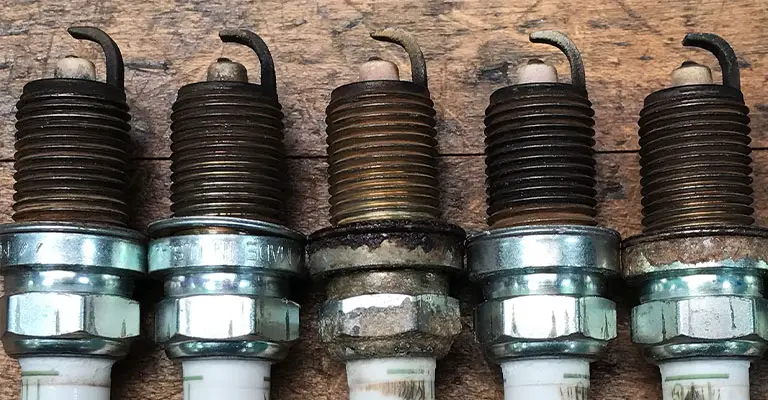
Worn spark plugs cause engine misfires. The spark plugs don’t ignite the fuel in the piston cylinders in a timely fashion, causing your car to jerk during acceleration. In most cases, replacing worn spark plugs is a simple and inexpensive repair.
What does It feel Like When a Car Jerks When Accelerating?
The feeling of your car jerking is important for you to understand. You’ll be left wondering what happened when your car jerks on you for the first time.
We should start here by getting a good sense of how it feels when a car jerks when it accelerates at slow and high speeds.
Often, your car will feel like it doesn’t have the power to proceed forward when it jerks. Depending on what’s causing your car to jerk, your car will stop, hesitate for a moment, and then lunge forward, even while your foot is pressed down on the gas pedal.
This will often happen many times. It will be difficult to build any speed up if your car is jerking as you try to accelerate.
Moreover, your car will jerk a lot if you’ve already accelerated, so you will have trouble maintaining your speed.
Having a car jerk when accelerating can make driving unsafe since you may have trouble getting a good grasp on it.
In addition, someone driving behind you could slam into your back if you suddenly slow down. Your car jerks on you while you’re out on the road because it needs to be looked at by a mechanic.
Final Words
To begin with, I would check the cables and terminals of the battery. Many strange problems can arise from loose cables.
Check that the terminals are tight enough to prevent you from moving them with your hands, and make sure they’re extra clean.
Whenever your car accelerates, you should pay attention to the jerking. If you don’t address a jerking car, you will likely develop other problems in the future.
If your car isn’t performing as it should, you should visit an automotive service shop with the skills to determine what’s wrong so that your vehicle won’t have to be towed.

